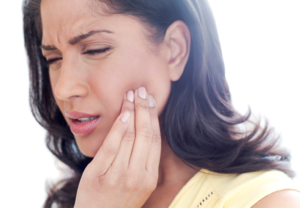TMJ Dysfunction
- Home
- /
- Blog
- /
- Dental Advice
- /
- TMJ Dysfunction
If you're suffering with TMJ pain, you're not alone. This condition, which affects the temporomandibular joints (the joints that connect your jaw to your skull), can cause a range of uncomfortable symptoms, including jaw pain, headaches, difficulty chewing, and even ear ringing. But don't despair - there are plenty of treatments available that can help manage these symptoms and improve your quality of life.
If you’re suffering with TMJ pain, you’re not alone. This condition, which affects the temporomandibular joints (the joints that connect your jaw to your skull), can cause a range of uncomfortable symptoms, including jaw pain, headaches, difficulty chewing, and even ear ringing. But don’t despair – there are plenty of treatments available that can help manage these symptoms and improve your quality of life.
TMJ pain is a common condition that can affect anyone at any age, but it is more common in women and people between the ages of 20 and 40. The pain is usually caused by a combination of factors, including genetics, arthritis, jaw injury, or grinding your teeth. It can be a temporary or long-lasting issue depending on the cause and severity.
The most common symptom of TMJ pain is a pain in your jaw joint and in the muscles that control jaw movement. Other symptoms include aching pain in and around your ear, difficulty chewing or pain while chewing, aching facial pain, and locking of the joint, making it difficult to open or close your mouth. These symptoms can affect one or both sides of your face. It’s important to seek medical attention if you have persistent pain or tenderness in your jaw, or if you can’t open or close your jaw completely.
Managing TMJ pain involves a combination of self-care practices, physical therapy, medications, and in some cases, surgical procedures. Self-care practices include eating soft foods, applying heat or cold to the side of your face, and avoiding extreme jaw movements. Over-the-counter pain relievers and anti-inflammatories can help manage the pain. Physical therapy exercises can strengthen jaw muscles and improve flexibility. In some cases, corticosteroid injections or even surgery might be necessary.
Think of your jaw joint as any other joint in your body, when it gets sore it needs to rest. But understandably this sounds difficult as you are constantly needing your jaw to talk and eat.
Things you can do to help the pain and rest your jaw:
Limit mouth opening by-
Temporal Mandibular Dysfunction Exercise
Please read our others articles here.

Back to Blog
Error: No feed with the ID 2 found.
Please go to the Instagram Feed settings page to create a feed.